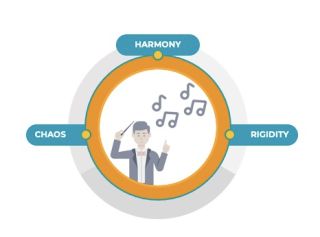Therapy
3 Questions to Ask Before You Give Up on Therapy
1. What is wrong?
Posted May 4, 2023 Reviewed by Gary Drevitch
Key points
- Talking with a therapist does not mean change is happening.
- For change to occur, we need to define what is wrong, know where we want to go, and determine the steps to get there.
- Before you give up on therapy, talk about your concerns. Ask your therapist what they expect to see happen and how change occurs.

If all the psychotherapists went on strike for a week, I am not sure there would even be a ripple in society. This exact summation of the effectiveness of psychotherapy was what Hans Eysenck suggested back in 1952 — and it’s a question researchers are still investigating. I am not suggesting that therapy is pointless — far from it — but I am saying it can be if we don’t know what needs to be accomplished.
When patients show up at my office for pain rehabilitation, sometimes they’ve already had years of psychotherapy. But when I ask out of curiosity what benefit they’ve received from all that treatment, they hesitate to tell me the truth.
“Well,” they begin, “I am not too sure. I kept waiting for something to happen, but I mostly just talked.”
Interesting.
When patients begin therapy with me, I explain that what we will be doing may differ from what they’ve experienced before. Upon hearing this, many of my patients are relieved. A few even express how angry they are that they have spent years of their life in therapy.
The requirements for change
To help my patients’ understand the difference they will experience in working with me, I ask them three questions. This gets them thinking about what is required for change to occur.
1. What is wrong?
I always begin with a rather obvious (but often overlooked) mental health inquiry: I ask my patients to describe what is out of place in their lives. Why do they believe they have symptoms of anxiety, depression, or addiction? I want to know what framework they use to understand their problems.
“My therapist thought I had a messed-up childhood,” a patient might say. That may or may not be true, but their response does not answer the question of what is happening now that is keeping them stuck here.
Neither does the response, “I’ve been diagnosed with depression.” A diagnosis is just a label, not an explanation. It’s like saying, “I have a fever.” A fever can occur for many reasons.
The answer to "What is wrong?" informs me of something that is happening now. But more accurately, it reflects the processes that started a person's struggle way back when — processes that are still being maintained in the present moment.
Our work together is to identify what these processes are. What we think and do right now creates the emotions and physiology we experience in the present — and defining these present-moment processes is key for meaningful change. (Learn more about the six processes that keep us stuck.)
2. What does it mean to be emotionally healthy?
The next question I ask is similar to the first: What does it mean to be emotionally healthy? I usually get blank stares, which may mean my patient and their previous therapist were not heading in a clear (or mutually understood) direction.
Psychology and psychiatry are fully to blame for this confusion. We have been told for years that "mental health" means a life free from anxiety, depression, psychosis, or addiction. The CDC’s definition is an improvement, but see if you recognize what is missing: Mental health includes our emotional, psychological, and social well-being. It affects how we think, feel, and act. It also helps determine how we handle stress, relate to others, and make healthy choices. As you read that statement, you realize mental health is only described, not defined. The question remains: What are those mental health processes that help us to be resilient and grow?
According to the field of interpersonal neurobiology, emotional well-being is a function of the mind’s ability to direct the flow of energy and information in the brain away from chaos and rigidity toward stability, harmony, and a focused direction. The definition needs just a bit of unpacking, but I find it very helpful in talking with patients about the kind of changes they want to experience to overcome problems like depression, anxiety, and addiction.
Picture a choir, a choir director, and a musical score. The choir is our brain, the director is our mind, and the musical score represents the direction in life we are heading to build meaningful relationships, be useful, and experience ourselves as in charge of our lives.

The job of the choir director is to monitor the choir, make changes to what the choir is doing, and bring about harmonious music by getting all the sections of the choir working together. If the choir director does not monitor and modify the choir well, chaos will ensue. To stop the chaos, the director might overreact by making everyone sing the same notes in the same way. This would be a rigid, inflexible solution that would ruin any chance of harmony, but at least clamp down on the chaos.
When we are emotionally balanced, our mind monitors our physical sensations, thoughts, emotions, needs, and social connections. We are aware of ourselves, open to our experiences, and able to evaluate what we are thinking, feeling, and doing.
The ability to monitor, modify, and direct the flow of energy and information toward harmony is a skill that can be learned and is central to our ability to be resilient under pressure, build strong relationships, and manage our troubling thoughts and feelings that lead to emotional chaos.
3. What have you learned that has helped you move forward with your life?
The final question I ask flows naturally from the first two. I often get an answer like this: “Well, I mostly talked a lot about how upset I was when I was younger.”
Now, I am all for putting words to what we feel, but talking about emotions, or even expressing emotions, does not equal change. Even gaining insight about why we feel bad or behave poorly is not change.
I find that with a clear picture of what the processes are that keep people stuck, and a defined direction to be working toward (emotional health), I then know what steps to take to help a person learn the skills they need to have to understand themselves and others, build good relationships, make an impact on the world that is meaningful, and be in charge of their life.
What to ask before you give up on therapy
Before you give up on therapy, consider asking the therapist some questions of your own. Start with the basics, like "What is mental health?" If they respond that mental health is the absence of mental illness, you should be concerned. Next, ask about the struggles you face: Can they identify the underlying processes that contribute to them? Follow up with a few questions about what you need to learn about emotional health, and what you need to do differently for change to happen.
You don’t need a degree in psychology to correctly judge the answers you hear. Trust your instincts. Just as a good cardiologist knows what a healthy heart looks like and what is wrong with your heart, a good therapist should know what it means to be emotionally healthy and how to get you there.
It may not be time to give up on therapy, but learning how to evaluate the help you are receiving can get you the treatment you really need.
To find a therapist, visit the Psychology Today Therapy Directory.




